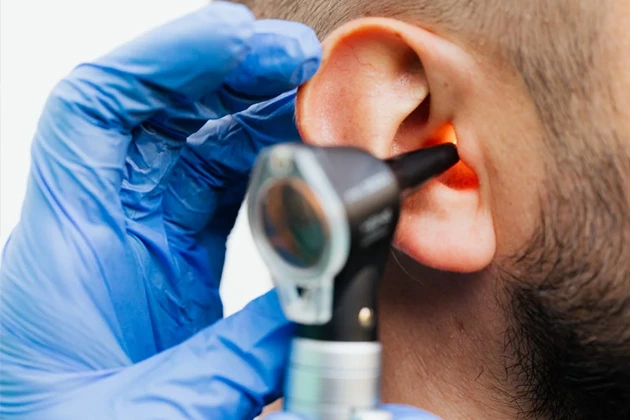Tinnitus is a constant or intermittent ringing, buzzing, or hissing sound in your ears that has no external source. It can range from a mild nuisance to a life-altering condition, affecting your focus, sleep, and mental well-being. While there is no cure, you can take control of how tinnitus affects your daily life. Understanding your triggers, using sound therapy, managing stress, improving sleep, and seeking professional support can all help reduce its impact. By adopting the right coping strategies and connecting with the right resources, you can minimize the frustration and learn to live more comfortably with tinnitus.
Using Sound Therapy to Mask the Noise
Using background noise can help mask the ringing and make it less distracting. White noise machines, nature sounds, or even a fan can provide relief, especially at night. Many tinnitus sufferers find that soft music or ambient sound apps help them focus and sleep better. Silence often makes tinnitus more noticeable, so looking for tinnitus solutions like white noise machines, nature sounds, or soft music can help mask the ringing and provide relief. If you prefer a customized solution, some hearing aids come with built-in sound therapy features. Experiment with different sound levels and types to find what works best for you.
Understanding Your Triggers
Common triggers include loud noises, caffeine, alcohol, stress, and lack of sleep. Keeping a journal of when your tinnitus worsens can help you pinpoint patterns and make necessary adjustments. If noise exposure is a factor, wearing ear protection in loud environments can help prevent flare-ups. If caffeine or alcohol makes the ringing worse, try reducing your intake and monitor the effects. Stress is another major contributor, so finding ways to stay relaxed can significantly improve your condition. Recognizing and avoiding triggers puts you in control, reducing the intensity and frequency of your tinnitus episodes.
Managing Stress and Anxiety
Tinnitus and stress are closely linked – stress can make tinnitus worse, and tinnitus can increase stress. Breaking this cycle is crucial for relief. Relaxation techniques like deep breathing, meditation, and yoga can help calm your nervous system and reduce the intensity of the ringing. Exercise is another powerful stress reliever, as it boosts endorphins and improves overall well-being. Cognitive behavioral therapy (CBT) can also help you change negative thought patterns related to tinnitus, making it feel less overwhelming. Prioritizing stress management not only improves your mental health but also makes tinnitus easier to cope with.
Improving Your Sleep Quality
To improve your sleep quality, establish a consistent bedtime routine and create a sleep-friendly environment. Avoid caffeine and screen time before bed, as both can stimulate your brain and make tinnitus more noticeable. Use white noise machines, soft music, or natural sounds to mask the ringing and create a calming atmosphere. Practicing relaxation techniques like deep breathing or meditation before bed can also help you unwind. If sleep disturbances persist, consult a doctor for additional strategies or possible treatments that won’t worsen your symptoms.
Seeking Professional Help
If your tinnitus is severe, persistent, or worsening, seeking professional help is essential. An audiologist can assess your hearing and recommend solutions such as hearing aids, masking devices, or tinnitus retraining therapy (TRT), which helps your brain adapt to the sound. An ear nose throat specialist can check for can check for underlying medical conditions like ear infections, hearing loss, or circulatory issues that might be contributing to your symptoms. If tinnitus is affecting your mental health, a therapist or counselor can provide coping strategies through cognitive behavioral therapy (CBT) or other treatments. Professional guidance can help you better understand your condition and find effective ways to manage it. For many people exploring convenient and affordable options, hearing aids online have become a reliable way to access advanced hearing technology without the need for frequent in-person visits. These modern devices often include tinnitus-masking features and customizable settings, allowing users to experience professional-grade relief from the comfort of their homes.
Connecting with Support Groups
Living with tinnitus can feel isolating, but connecting with support groups can make a significant difference. Talking to others who understand your struggles can provide emotional relief and practical advice. Online forums, local tinnitus support meetings, and organizations like the American Tinnitus Association offer resources, coping strategies, and a sense of community. Sharing your experiences and learning from others can help you feel less alone and more empowered in managing your condition. Support groups also provide access to the latest treatments and research, giving you hope and new ways to improve your quality of life.
Living with tinnitus can be challenging, but it doesn’t have to control your life. You can significantly ease your symptoms by identifying your triggers, using sound therapy, reducing stress, and improving your sleep habits. Seeking professional guidance and connecting with support groups can also provide valuable insights and reassurance. Managing tinnitus requires a combination of patience, consistency, and the right coping strategies. While the ringing may not completely go away, you can take steps to make it less disruptive and regain control over your well-being.











